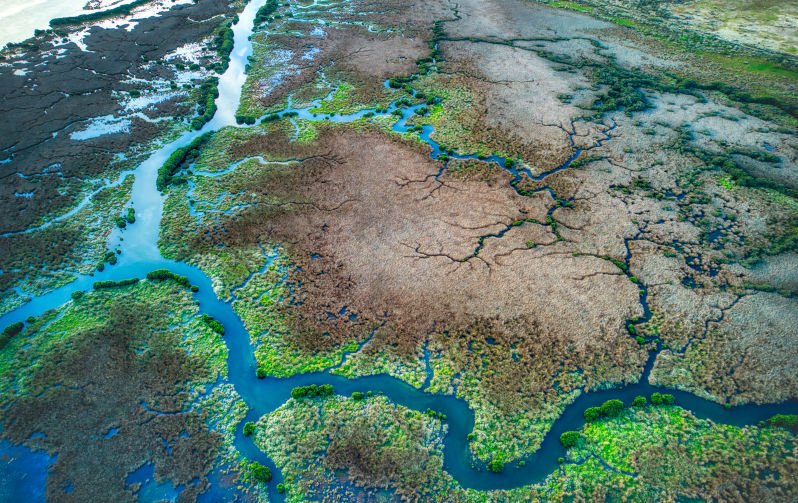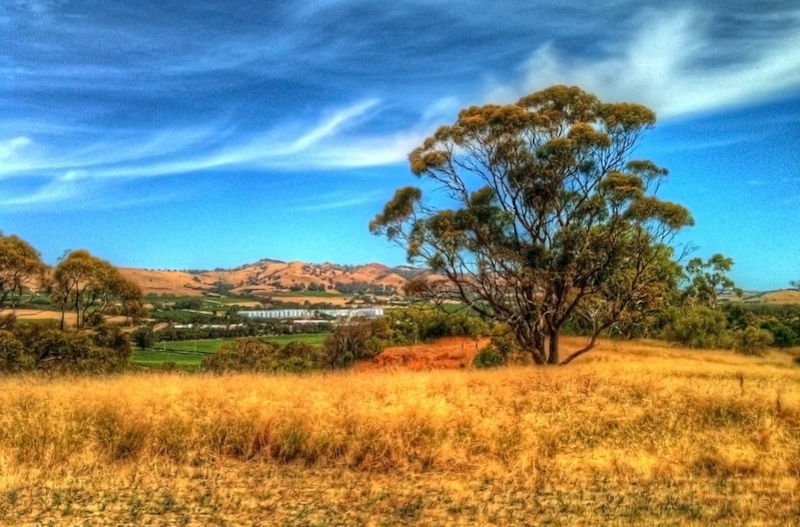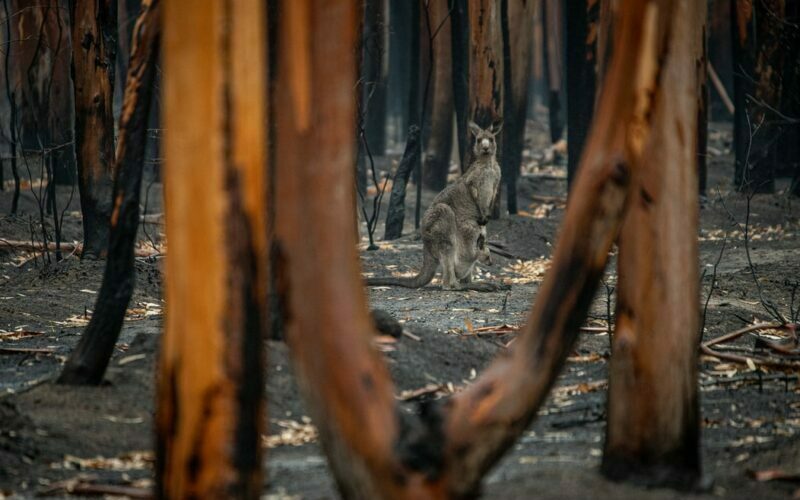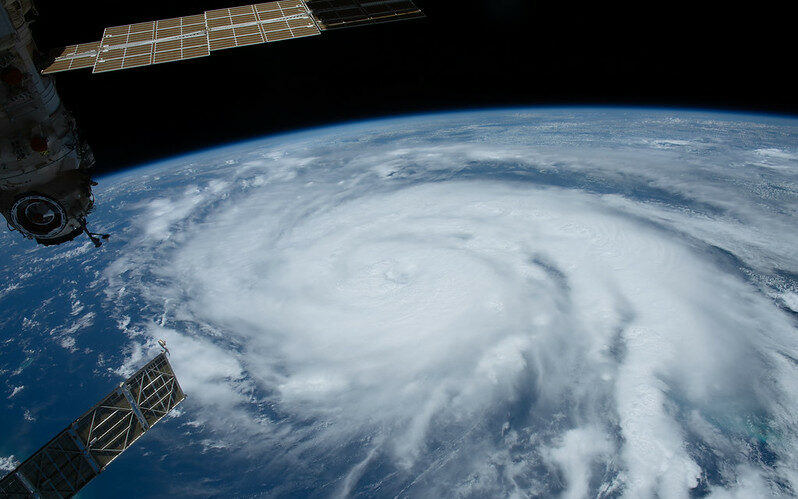News out of the US on the firing of public servants by the Trump administration has consequences worldwide. Downsizing of the National Oceanic and Atmospheric Administration (NOAA) will potentially impact many nations including our capacity to forecast extreme weather events and understand the consequences of climate change. (more…)
Bruce Thom
-

The National Environment Protection Agency and the integrity of Australia’s ecosystems
Some of us were not too surprised when the Prime Minister pulled the plug on the passage of legislation to establish an environmental protection agency (EPA). Along with colleagues from the Wentworth Group of Concerned Scientists (WG) and other environmental organisations, we had been advocating for a strong independent authority that would meet the requirements set out in the review by Graeme Samuel of the federal EPBC Act. (more…)
-

Curse of the cumulative impacts
There are many actions taken by individuals, corporations, and governments that by themselves might be considered minor but when taken together can substantially cause harm to environmental values. Revision of the federal EPBC Act provides an opportunity to include provisions that will help mitigate adverse effects of these “cumulative impacts” on areas containing threatened species and ecological communities. (more…)
-

Protecting nature: art of the impossible?
In recent months governments around the world, including ours, have been striving to reach agreement on “protecting nature”. The UN summit held in Montreal aimed at reaching a global deal to secure the protection of 30 per cent of the planet by 2030. (more…)
-

EPBC Act and regional landscape and resilience plans
The new Australian Government is well positioned to pick up the challenges from the Samuel review of the EPBC Act and the IPCC’s adverse comments on Australia’s institutional performance in managing climate risks. A way forward could involve formal recognition of a regional landscape planning approach in partnership with States and Territories. (more…)
-

IPCC throws down the gauntlet on Australian institutional deficiencies on climate change.
Exposure and vulnerability of various natural and human systems to climate change are discussed at length in the latest IPPC report (6th Assessment Report on impacts, vulnerability, and adaptation). (more…)
-

Climate change strategy must be adaptable to withstand new era
If the new climate change strategy is to succeed, it will need to be a living document, to be adapted and enhanced.
-

Lessons for Australia from an extreme storm season in the US
Social vulnerability and the lack of coordination in disaster planning have been exposed by extreme storm events in the USA. There are lessons for those preparing to mitigate increasing intensity of similar events in Australia.
-
Death by a thousand cuts – EPBC Act needs a powerful cop on the beat
A bill to change the Environment Protection and Biodiversity Conversation Act focuses on streamlining the approvals process and devolving federal powers to the states and territories. But the Act already fails to capture most impacts of development because it doesn’t consider them holistically. (more…)
-
Environmental values remain threatened
Environmental legislation now before federal parliament offers an opportunity to go beyond that of removing “green tape”. Devolution to the states of federal responsibilities without an independent regulator and funding support will ensure our environmental trajectory remains unsustainable.
-
University research and teaching – is the nexus broken?
Emphasis in higher education funding overlooks the fundamental nexus between teaching and research. Academics are driven by their training and inclination to pursue research questions. (more…)
-
BRUCE THOM.- Challenge and Response: The Current Crisis
Thinking now about our current global health/economic crisis, I see how we need creativity to get us over the proverbial hump and back to that desired state called normality. (more…)
-
BRUCE THOM.Time for Adaption on Climate Change.
There is a need for the Commonwealth to rethink mechanisms for supporting the states in disaster management through the establishment of a climate change adaptation action arm within the Defence portfolio. A model is offered based on the US Army Corps of Engineers. (more…)
-
BRUCE THOM. The whereabouts of climate change adaptation
Since the late 1980s climate change adaptation has received limited consideration by the Australian Government. Mitigation continues to dominate the national discourse. (more…)
-
BRUCE THOM. Climate Change and Relativity—Some Parallels.
Science can be incomprehensible to many, yet it requires others to help communicate and apply great works such as those of Albert Einstein. Climate change science is also quite complex and those in this field are facing similar difficulties to those who sought to explain relativity to the broader public. It is irresponsible of decision-makers to not trust the science and ignore its implications in today’s uncertain world. (more…)
-
BRUCE THOM. Federal election and coasts
I am not sure how many Australians appreciated promises made about coastal issues during the recent federal election. Perhaps very few. This despite the fact that so much of our national well-being and livelihoods are dependent on healthy coasts and waterways. Yet it is interesting to look at promises made by the two major parties and think about what our federal system has to offer over the next 3 years (and beyond!). (more…)
-
BRUCE THOM. Climate change adaption: perspectives from Canada and England
Australia can learn lessons from other countries who take very seriously the importance of addressing now the various complex challenges of climate change impacts on environmental assets and the lifestyles and livelihoods of citizens. We have no national plan to mitigate the threats and impacts of natural disasters and extreme weather events under emerging conditions of the new climate era. Two recent initiatives from the UK and Canada provide directions a future federal government could follow building on current work especially by some state governments. (more…)
-
BRUCE THOM. Climate change adaptation: perspectives from canada and england
Australia can learn lessons from other countries who take very seriously the importance of addressing now the various complex challenges of climate change impacts on environmental assets and the lifestyles and livelihoods of citizens. We have no national plan to mitigate the threats and impacts of natural disasters and extreme weather events under emerging conditions of the new climate era. Two recent initiatives from the UK and Canada provide directions a future federal government could follow building on current work especially by some state governments. (more…)
-
BRUCE THOM. Future national need for a healthy environment.
Since the mid-1980s it has become increasingly established that climate change will impact the lives of Australians, on the economy and the health of environmental assets. The interconnected functioning of natural processes requires us to look beyond the settler view of exploitation of nature. To do this we must somehow enshrine in law, such as through a Charter of Rights for Nature, the protection and restoration of valued natural assets vital to the nation’s long-term wellbeing. (more…)
-
BRUCE THOM. University research cuts.
The December budget update gave the federal government the opportunity to once again slice into the operating expenses of universities. This time it was to cut funds for research. Cumulative hits to one of the nation’s major sources of export income, let alone further stifling funding for research and development, reflect a pattern of anti-intellectualism which some have come to expect from this government. (more…)
-
University Research Under Veto
Veto action on certain successful Australian Research Council research proposals together with a proposal to establish a “national interest” test by federal Ministers for Education reflect poorly on the independence and integrity of university research and research training. (more…)
-
BRUCE THOM. CLIMATE CHANGE ADAPTATION—A LOSS OF MOMENTUM
Over the past 10 years, there has been a range of initiatives by federal and state governments that aim to improve the nation’s capacity to meet the challenges of climate change. Considerable attention has been directed at reducing emissions, or climate change mitigation, especially at a federal level. Efforts to respond to impacts of climate change, or climate change adaptation, have been the subject of less public debate although the focus of research and planning by governments, academic institutions and some businesses. It appears that the appetite for continuing such efforts is dwindling. This does not bode well for the nation’s future. (more…)
-
BRUCE THOM. King tides and extreme events
Summer has been awash with extreme ocean water levels reaching positions rarely seen in the past along the NSW coastline. On two occasions the tide gauge at Fort Denison reached levels only exceeded three times since the more accurate self-recording tide gauge was installed there in 1916. Such events raise questions as to why these summer king tides resulted in exceptionally high water level events, whether similar events will occur more frequently in the future, and what are the long-term consequences. (more…)
-
BRUCE LINDSAY. “Anti-corruption”, water and the Basin plan. A repost from October 8, 2017
Water management and decision-making is vulnerable to lobbying by powerful commercial interests, as was illustrated recently by the ABC Four Corners investigation into NSW water management. Even where such conduct cannot be categorised as corrupt in the criminal sense, it can compromise the integrity of public governance of natural resources. Excessive private interest in the exercise of public power needs to be resisted, and may be overcome by reform that ensures stricter standards, accountability and public participation. In water governance, reform based on ‘anti-corruption’ principles, could include increased legal and policy mechanisms such as third party participation rights, administrative hearings and a more prominent role for the public trust doctrine. (more…)
-
BRUCE THOM. Keeping the Murray mouth open
Maintaining an open mouth of the Murray River in South Australia was a key objective of the Murray Darling Basin Plan (MDBP). The Basin Plan was established by the Australian Government to address the chronic over-allocation of water for irrigation and other purposes. One aim of the MDBP was to recover more water for the environment including sufficient water to maintain an open mouth without the need for dredging most of the time. Following a review of the MDBP by the Wentworth Group it appears that this objective will not be meet. (more…)
-
BRUCE THOM. Hurricanes Harvey and Irma, and their implications for Australia
Massive losses in Texas, Florida and across the Caribbean in recent days reminds us again of the capacity of tropical cyclones to wreak havoc. (more…)
-
BRUCE THOM. Disaster preparedness and climate change: a national conundrum
Australia’s policies on climate adaptation and disaster preparedness are not being brought together across jurisdictions to make the nation more resilient to inevitable shocks, let alone the insidious effects of reduced rainfall and water supplies. Professor Bruce Thom suggests how the imbalance between emission control and adaptation can be addressed with three related policy suggestions. (more…)
-
BRUCE THOM. Agonies of an American scientist under Trump.
A truly great nation must be compassionate, loving, kind, rational and celebrate diversity. (more…)
